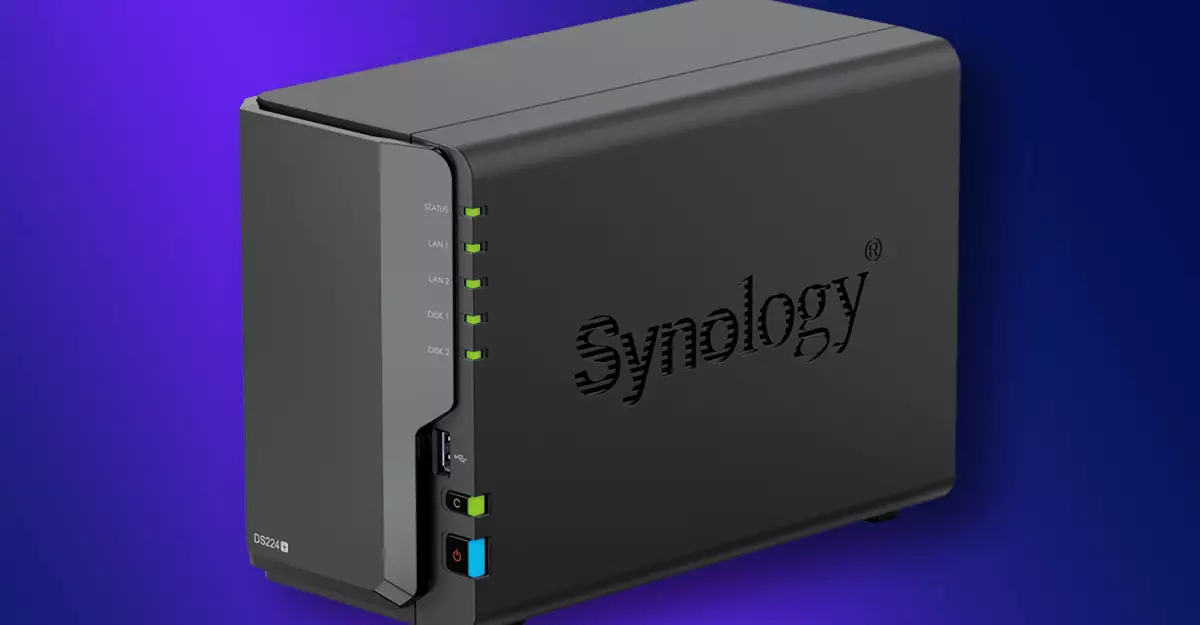In an era where data is recognized as the new oil, network-attached storage (NAS) systems have surged in popularity, empowering users to host their data in a controlled, convenient manner. Synology, a prominent player in the NAS market, has carved out a significant niche by allowing users flexibility in choosing hardware. However, this landscape is rapidly changing, as Synology gears up to impose restrictions on third-party hard drives in forthcoming models, stirring mixed reactions among its user base.
The Impending Changes: What You Need to Know
Synology has confirmed that starting with its Plus Series models releasing in 2025, users will face significant hurdles when trying to utilize non-Synology branded hard drives. According to a press release, only drives that meet the company’s stringent specifications will maintain “the full range of features and support.” This shift is poised to impact core functionalities that many users rely on, such as pooling storage for seamless data access and leveraging advanced features like drive lifespan analysis.
The silver lining for current owners of Synology NAS systems is that existing devices will remain unaffected by these restrictions, a reassuring aspect amidst a wave of change. Users of the J- and Value-series, along with those who purchased Plus devices before 2025, can breathe easy knowing their investments remain intact. However, the future remains uncertain for those preparing to upgrade their systems.
Understanding Synology’s Rationale
While some may view Synology’s move as a blatant reduction in user freedom, the company’s internal rationale is rooted in user experience and reliability. A spokesperson for Synology cited extensive testing which indicated that the utilization of drives that have undergone rigorous validation ensures lower risks of failure and compatibility issues. The intent, as they claim, is to bolster system reliability and performance—noble goals indeed, albeit executed in a way that invites skepticism.
The discerning user might question whether the benefits of increased reliability truly justify the imposition of such restrictions. After all, the ability to select from a wide array of compatible drives fosters not only creativity in storage solutions but also cost-effectiveness for consumers. As it stands, users might find themselves cornered into a narrower range of options—potentially at a premium price—sacrificing the flexibility that has traditionally characterized the Synology experience.
The Double-Edged Sword of Restrictive Practices
Restrictive practices in technology often elicit frustration. History is replete with examples of companies implementing measures that limit user choice, often under the guise of safeguarding performance. While Synology’s approach appears less draconian than, say, a printer manufacturer blocking third-party ink through firmware updates, it nonetheless raises eyebrows. Users might feel the sting of reduced choices, particularly in a landscape where cost efficiency is paramount.
Furthermore, as users face potential increases in expenses due to limited selections, the allure of switching to alternative NAS solutions becomes more enticing. Competitors that maintain open systems could draw those who prioritize flexibility and budget-friendly options. In what may seem like a bid to control the ecosystem and boost sales for its own branded drives, Synology might inadvertently drive its loyal customers away.
Navigating Next Steps: User and Industry Reactions
As Synology prepares to implement these changes, the industry watches closely. Users are already expressing their concerns on various platforms, questioning the balance between enhanced reliability and the right to choose their hardware. Many are debating the necessity of going through such lengths when established hardware often performs adequately without the company’s overarching regulations.
With Synology holding a prominent position in the market, the ramifications of this move could echo throughout the industry, influencing how manufacturers strategize their product offerings. If Synology’s user base shrinks or shifts toward more flexible competitors, it could signal a crucial turning point for not only the brand but the broader NAS landscape.
As the adage goes, “power attracts both benefits and risks,” and for Synology, the evolution of user expectations will be essential to balancing innovation with accessibility.

